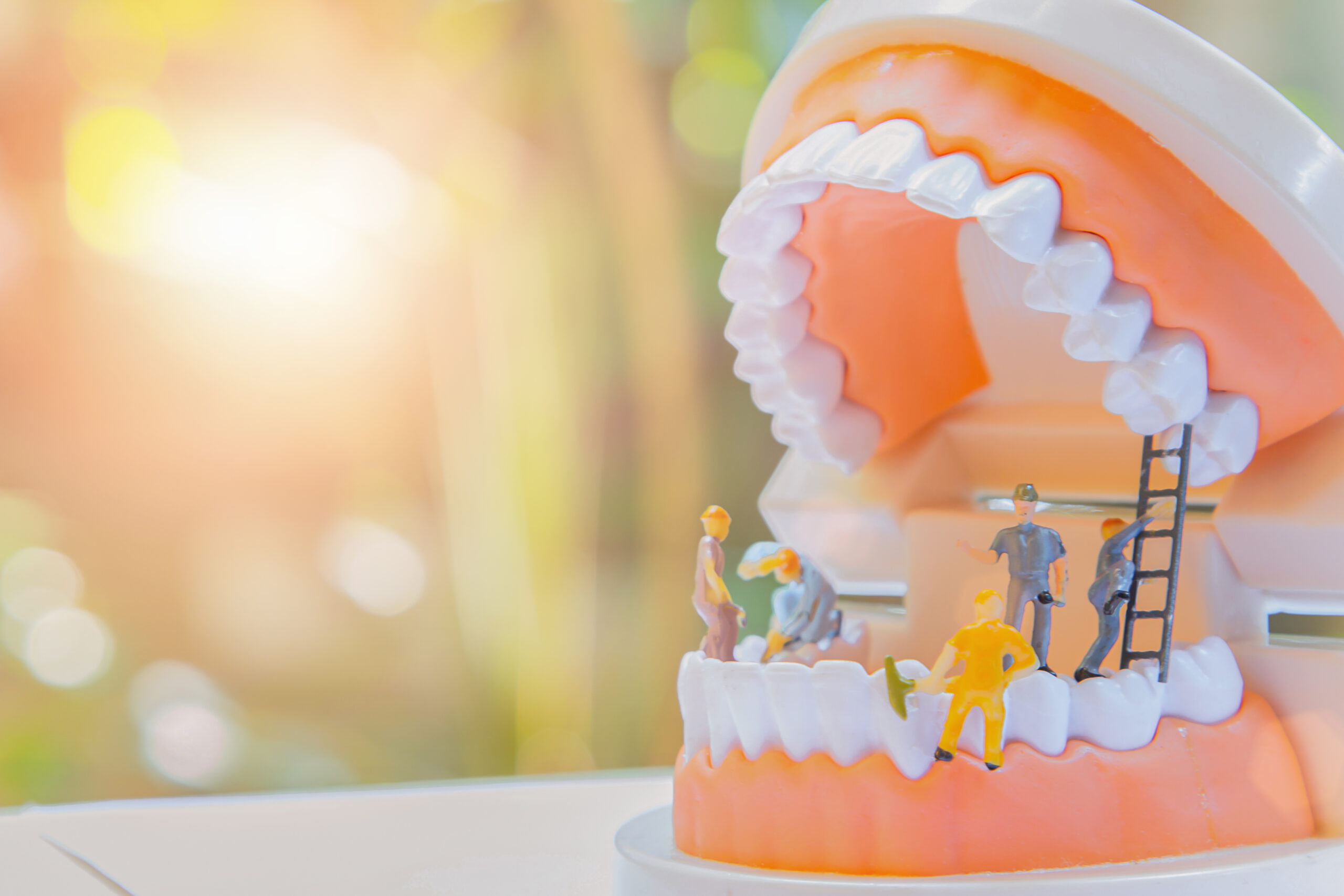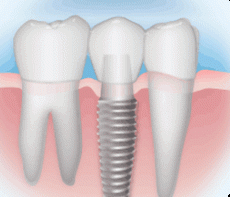
Implant hygiene visits-Implant preservation
Dental implants are amazing tooth replacement and we, in some ways, take them for granted and assume they can be forgotten once they are installed. It is true that dental implants are not affected by decay and they are resistant to periodontal disease and plaque more than our own teeth. It is also true that implants require a certain amount of specialized attention and different methods for caring for the implant as compared with natural teeth.
#1. Implants do not heal with the same kind of connection to the gums as teeth have.
Implants heal without having strong fibers attaching the gum to the implant itself. Teeth resist gum disease because they have strong connective tissue fibers that help form a seal between the teeth and the gums. Implants have an “epitheilial connection” made up of weak cell attachments called hemi-desmosomes that are weaker and is susceptible to inflammation and infection. Having an implant requires us to consider more frequent cleanings. Dr. Dennis Tarnow at NYU where I have studied considers frequencies for cleanings to be at a 3-4 month frequency just like those with underlying periodontal disease. If you have implants and expect to achieve a lifetime of trouble-free implant ownership, you will need to have cleanings more frequently.
#2. Implants are made of Titanium-
Titanium cannot be scraped and cleaned with traditional instruments because titanium is stronger but actually stronger than the stainless steel we scale and clean teeth with. When we perform implant cleaning either use specialized titanium instruments or plastic to both scale and to measure periodontal pockets for all implants. At home, your specific care for your implants will include the use of Proxibrush dental brushes by Oral-B, Hydrofloss brand irrigators or careful use of electric or manual toothbrushes. We use Oral-b end- tuft brushes and the new Genius Oral-B automatic brush. Irrigation with plain water or chlorhexidine .12% (Peridex brand for example) is regularly recommended.
#3. Implant loading is important- Avoid damaging forces
Implants are strong when they encounter normal chewing forced in a straight up and down direction. When implants encounter shear forces, as are common in grinding and clenching, implant are susceptible to wiggling out of the bone fully or loosening due to these sideways forces. It is critical for implant patients to manage and control their bite forces by consistent wear of a custom made occlusal appliance such as bite guard, Vivera retainer or hard acrylic night guard. Tipping forces (shear forces) make implants fail.
#4. Implants are sometimes hard to clean-

In health the periodontal pocket in natural teeth is from 1-3 mm deep. Implant pockets are routinely 3-4 mm deep and reach down to the bone frequently. Plaque is frequently found around our implants. Lets face it, many patients who have implants also had trouble maintaining their own teeth and may already have periodontal damage. In order to expect a lifetime of implant service our patient should try their best to maintain meticulous hygiene everywhere in your mouth but especially around your implants.
#5. Implant durability-
Implants are tremendously successful when they heal properly over the first 6-12 weeks after placement and failure numbers only are from 2-5% of total cases. That makes implant longevity one of the most reliable and long lasting options for tooth replacement. They are considered to have a “lifetime potential” with a proper professional and personal hygiene program coordinated with our experienced hygiene department. As always, ignore your teeth (or your implants) and they will GO AWAY! We want to help you preserve your implants for a lifetime.
#6. Full mouth implant care- When there are more implants than remaining teeth!
In those cases where full arch implants or a hybrid implant restoration is chosen the maintenance of your restoration has to be brought to a higher level. These restorations are often screw-retained hybrid dental appliance or permanent dentures. Only we can remove the teeth in these cases and food can collect underneath the teeth regardless of how much our patients try to clean them. We recommend removing the set of teeth every 3-4 months on most cases to clean the entire appliance. We remove all the screws, clean the screws, clean the appliance and sterilize it, re-torque the screws, replace the hole filling materials, clean all the implants in the jaw completely, provide you with specialized cleaning tools/instructions and apply antiseptics and disinfectants. The cost of these visits should be considered at the time of treatment acceptance. The entire maintenance visit is approximately $400! These visits can be covered by insurances if they include D6080 as a covered procedure in your benefit plan.

